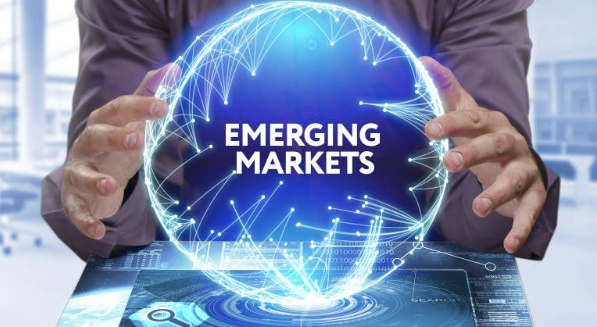Viewpoint | Cheng Xiaoming, "Godfather of the New Three Boards": What are the pain points of enterprises that can be solved by blockchain "chain reform"
Moderator: Mr. Cheng, you are praised by the industry as the "Godfather of the New Third Board". He has unique insights and in-depth theoretical research on the New Third Board, OTC markets, technology and finance. It is also the initiator of chain reform, so in what scenarios do you think it is necessary to do chain reform and the introduction of blockchain technology? why?
Cheng Xiaoming: I think we must first consider a question about chain reform. What exactly is chain reform? Chain reform is actually "blockchain reform" or "blockchain transformation", which is the act of reforming or transforming the existing industry or the company's own business through the application of blockchain technology. However, there is no complete and unified answer to the understanding of the blockchain, so there is no uniform term for the "chain reform" in the blockchain reform. That is to say, everyone is talking about the blockchain and the blockchain chain reform, because everyone understands differently, and its meaning is different, so I don't think who proposed the chain reform is important.
In 2018, I first proposed a chain reform. Because everyone views the chain reform from different angles, some people are biased towards technology and some are biased towards applications. For example, traceability is now more commonly used. In terms of applications, some people emphasize that chain reform is in the financial field, and some people emphasize the transformation of corporate organizational forms, and I personally prefer the latter.
The chain reform I mentioned is actually a transformation of the existing company system. Everyone knows that economics mainly studies how to improve the allocation of resources to achieve the best results. The business system replaced market transactions. What runs through it is economic thinking, that is, the effective integration of resources. In fact, the mention of chain reform today is mainly to reform the organizational structure of enterprises, allowing companies to use blockchain ideas and technologies to create isolated industries into industrial ecology, such as industrial alliances.
- What can a blockchain do for various companies?
- Blockchain changes production relations? Big data is not ready to serve as a means of production
- How does blockchain help security on the tip of the tongue?
In the enterprise alliance, we call this kind of organization, and the enterprise group itself is not a company, it is just a community of interests between enterprises. There is no equity relationship, no parent-child relationship, and no subordinate relationship between the industries or enterprise alliances that are organized using the blockchain. All enterprises are equal.
It is closer than the alliance formed according to the agreement, and more flexible than the corporate cooperation alliance formed by the holding relationship and the equity relationship. I think the role of blockchain is to allow equal subjects, including enterprises, to form a consensus of ideas, and the core of blockchain is the consensus mechanism.
Use blockchain technology to form consensus among equal companies, so that everyone forms a community of interests. Therefore, in theory, all enterprises need chain reform. Due to the development of society and the restrictions of historical, cultural and social systems, the era of single-handed enterprises has passed. Chinese enterprises must participate in international competition and occupy a place in the world. Alliances, but alliances cannot be organized by nations, as this does not comply with existing international rules. If Chinese companies can unite and participate in international competition without the government's presence, they can only use blockchain for chain reform. The most successful example is Japan's integrated trading companies. Japan's integrated trading companies appear to be independent legal persons on the surface, but in fact, they form a community of interests and all appear as alliances when participating in international competition.
Moderator: In what industries do you think the chain reform should be prioritized? Let's analyze how the chain reform solves the pain points in combination with the industry. What problems still exist after the chain reform?
Cheng Xiaoming: I think the chain reform has little to do with the industry, after all, all industries need it. The micro organization of the economy is a company, and the highest form of a company is a public company. The micro-organization of the future economy is no longer a company system, but a blockchain organization. This is the biggest change in the future and the biggest impact of the blockchain on our economy.
Moderator: What are the essential differences between blockchain finance and financial industry chain reform? What is the future of blockchain finance?
Cheng Xiaoming: Blockchain finance and chain reform in the financial industry are two concepts. The so-called blockchain finance refers to the development of financial products using key blockchain technologies, and the use of blockchain technology in market operations is called blockchain finance. The chain reform of the financial industry is for financial companies to use the blockchain thinking to build a community of interests and a blockchain organization. The prospect of blockchain finance, I think the key lies in financial products. The blockchain was originally from Bitcoin, and Satoshi Nakamoto made some changes to traditional technologies such as databases and the Internet in order to issue Bitcoin. The core of the transformation is to make this database decentralized, and the biggest problem of blockchain finance is the token you issued.
We are now issuing so-called coins in ERC2.0, but in fact the coins issued on the market are all problematic. The first attribute of currency is taxation. The state collects coinage tax by issuing coins. The government collects taxes because it provides public goods. What we call a digital currency is actually a private currency. This is the right of the government to collect taxes, and currency is only a means of payment. So although the blockchain can theoretically be used to issue coins, this coin cannot be easily issued. What can be done? We can consider issuing a stock-like financial product to a limited extent. The STO proposed by Americans the year before is the stocks issued by private entities. We can use blockchain technology in this regard, which is also the future direction of the blockchain.
Moderator: Entering 2020, humans have experienced a series of crises, from the full outbreak of coronavirus, the collapse of crude oil prices to the meltdown of multinational stock indexes, the blood flow of global capital markets, and then the world may enter a downward channel of the economy or even Will the economic crisis have a devastating impact on the already weak blockchain industry?
Cheng Xiaoming: I think the blockchain industry is not small, there is no government support, and there is no blockchain industry supported by the world's top 500 institutions. Now it can do so large, with a market value of 100 billion units. . Developed to the present, the blockchain has gradually entered the corner of the society, and world-class companies have gradually entered the blockchain industry, such as Facebook. It will issue Libra, which can also be regarded as a major event in the blockchain field. Of big companies are starting to pay attention to this industry.
Blockchain originally comes from the market, so this so-called economic and financial risk will not have a significant impact on it. In a sense, it is because of the economic and financial crisis that the blockchain emerged and Bitcoin was created. Everyone knows that the blockchain itself is the underlying development technology of Bitcoin, because there is a saying that Bitcoin has a blockchain. At the time Satoshi Nakamoto wanted to create Bitcoin, it was also because of Wall Street's disorderly currency that caused the financial crisis, so he launched Bitcoin. In other words, the blockchain industry originally came along with the financial crisis, so if another financial crisis occurs, it will not only be a blow to the blockchain industry, but may be an opportunity. Without the financial crisis, there would be no related industries. Just to judge the development status of the blockchain industry, it cannot be simply measured by the standards of traditional industries.
Moderator: Recently, 13 provinces and cities, including Beijing and Hebei, announced the “Investment Plan for Major Projects in 2020” with a total investment of nearly RMB 34 trillion. The focus is on “new infrastructure” projects. Do you think this has a bearing on the domestic blockchain industry? In terms of how to catch up with this "air vent", you give some suggestions.
Cheng Xiaoming: Traditional infrastructures are railways, highways, bridges, and other infrastructure. The focus is on solving logistics and people flow. The new infrastructure has seven directions: first is UHV; second is the charging pile for new energy vehicles; third is the 5G base station; fourth is the industrial Internet; fifth is artificial intelligence; sixth is the big data center; seventh It is intercity rail transit. The new infrastructure is mainly to solve the flow of people, and to solve the three problems of information flow mainly based on 5G, artificial intelligence, big data: First, data collection, including the Internet of Things and the Internet. Second, the transmission of information. Third, artificial intelligence. All artificial intelligence is the collection of data obtained from big data. Artificial intelligence is the method of processing and analyzing data. The key link of various algorithms based on this model is data transmission. If the data stream is tampered with during transmission, the entire system will crash. How to ensure that data is not destroyed or tampered with during the transmission process requires blockchain technology to solve it.
The so-called blockchain is to jointly maintain a database, which limits the leakage of data on the mechanism, and guarantees that the data already on the chain cannot be tampered with, thereby ensuring the authenticity of the initial data. If the data is fake in the beginning, then you will pay huge cost pressure, so the blockchain cuts off the possibility of data fraud from the source. In the construction process of the new infrastructure data flow, the blockchain is a crucial link. Without the blockchain, it is likely that the new infrastructure will become an image project, and all investment will be frustrated.
Based on the epidemic situation, we summarized the lessons and found that if there is blockchain intervention, the data may be very smooth from the local hospital to the national CDC health committee to the central government. It may be in the process of information transmission, including doctors from Xiehe and Tongji Data can become open and transparent. However, the data information in this outbreak is very lagging, so how to solve the obstacles encountered? First, the blockchain can be transmitted peer-to-peer. Second, you can prevent data from being tampered with during the transfer process. Therefore, the blockchain is an important foundation and support in the new infrastructure. If no blockchain is involved in the construction of the new infrastructure, the new infrastructure is likely to face failure.
We will continue to update Blocking; if you have any questions or suggestions, please contact us!
Was this article helpful?
93 out of 132 found this helpful
Related articles
- Interview | Weizhong Bank Blockchain Security Scientist: Strictly adhere to the privacy data red line, business innovation compliance
- Research | Blockchain opens a new chapter in health
- Solana completes Dutch auction, raises $ 1.76 million
- Blockchain application goes to the next city Shanghai court pilots blockchain technology
- How to invest in half? Where do companies go public? Where is the capital? Blockchain First Trader Decrypts For You | Babbitt Industry Lesson
- Smart contract backdoor unveiled: It's not just hackers who steal money, the "one-click coin" platform has hidden backdoors
- Research | How does blockchain technology empower digital agriculture?






